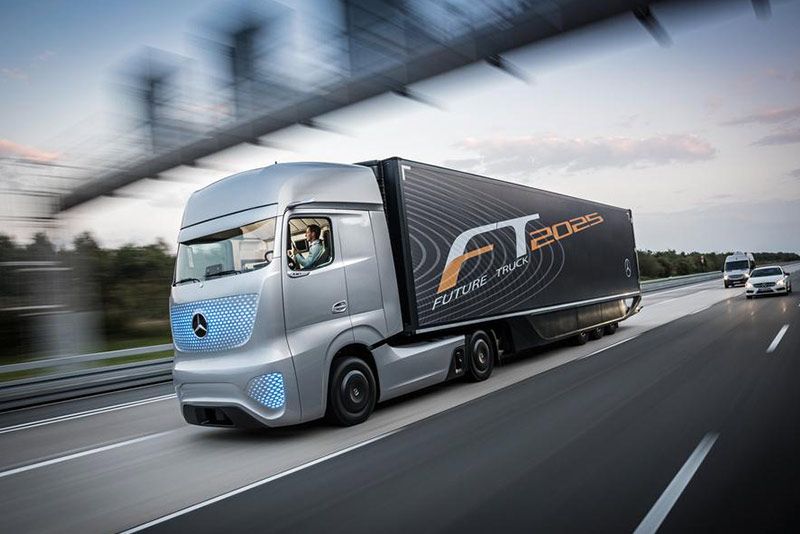Tucker Carlson, debating Ben Shapiro, made the libertarian end of the sphere lose their shit.
So would you, Tucker Carlson, be in favor of restrictions on the ability of trucking companies to use this sort of technology specifically to, you know, sort of artificially maintain the number of jobs that are available in the trucking energy?
Are you joking? In a second. In a second! In other words, if I were president and ran the DOT, Department of Transportation, we're not letting driverless trucks on the road, period. Why? Really simple. Driving for a living is the single most common job for high school educated men in this country in all 50 states. Okay, that's the same group whose wages have gone down by 11 percent over the past thirty years. The social cost of limiting their jobs in a ten-year span, five-year span, thirty-year span is so high that it's not sustainable, so the greater good is protecting your citizens.
Look, capitalism is the best economic system I can think of, I think that anyone's ever thought of, but that doesn't mean that it's a religion and everything about it is good. There's no Nicene Creed of capitalism that I have to buy into, what I care about is living in a country where decent people can live happy lives, and so, no, I would say, no, are you joking?
One way to take what Carlson said about capitalism not being a religion is that it is not the only or highest value. I've pointed out before that efficiency is not the highest goal of an organization, and a company that values efficiency and year-to-year profits over long term survivability, antifragility, and effectiveness will find itself bled to death by beancounters.
Money is not a virtue. There are things to value beyond the immediate or even long term profits. Some of those conflict with profit.
You'd really think that those who espouse Bastiat's concepts of the seen and unseen would get that.
One of the reasons I glommed onto Taleb's discussions of antifragility so readily is that it mapped so well as a simple concept that explained so well both the arguments I was making toward why it's not stupid for the US government to help fund rail lines, maintain its own inefficient communication service, or "runways in the middle of nowhere", and arguments I've made as to why it is important for companies like Dell to not throw away institutional knowledge at the base of how their products work by outsourcing all of their production to other companies.
And that is what is at stake here.
Sure, it may be more "efficient" for a company to move to automated vehicles instead of human drivers, but they're not saving themselves much in terms of mechanics, people to maintain the automation, etc. While the use case for self-driving trucks is admittedly more road-bound and on major streets than for cars, there are still innumerable places that have no clearly defined roads. And while we're on the subject of "things people easily do that computers find hard" - the recent stories of cars coming to a sudden stop because the automated braking sensors were confused by snow, dirt, ice, etc. on the front of the car is a stark reminder of how easy it would be to stop or hijack those trucks.
And that's not even getting into the question of centralized dispatching. Sure, I'm sure the GPS in the truck itself combined with an onboard computer and sensors can be given a destination and be left to go, but compromise the dispatching system - which has to be online, and you can block streets, stop up traffic, cut off access to services and communities. Sure, drivers can do that too, but that requires a lot more people to buy in.
Leaving aside the social issues - what is the cost of keeping a truck driver who can flexibly respond to situations or stop to get out and help people vs the cost of having him unemployed not only in welfare but to society in a man without purpose, to his soul - shifting to an automated system means shifting to a centralized system with reduced points of failure, with the consequences of said failures being broader in scope. It is banking on "predictability" for efficiency to cut down the overhead of drivers while actually being more fragile, and their customers and public getting the shaft to an even greater degree when something goes wrong. It is risk-shifting and avoiding skin in the game, something the drivers have, and through them, the companies employing them.

